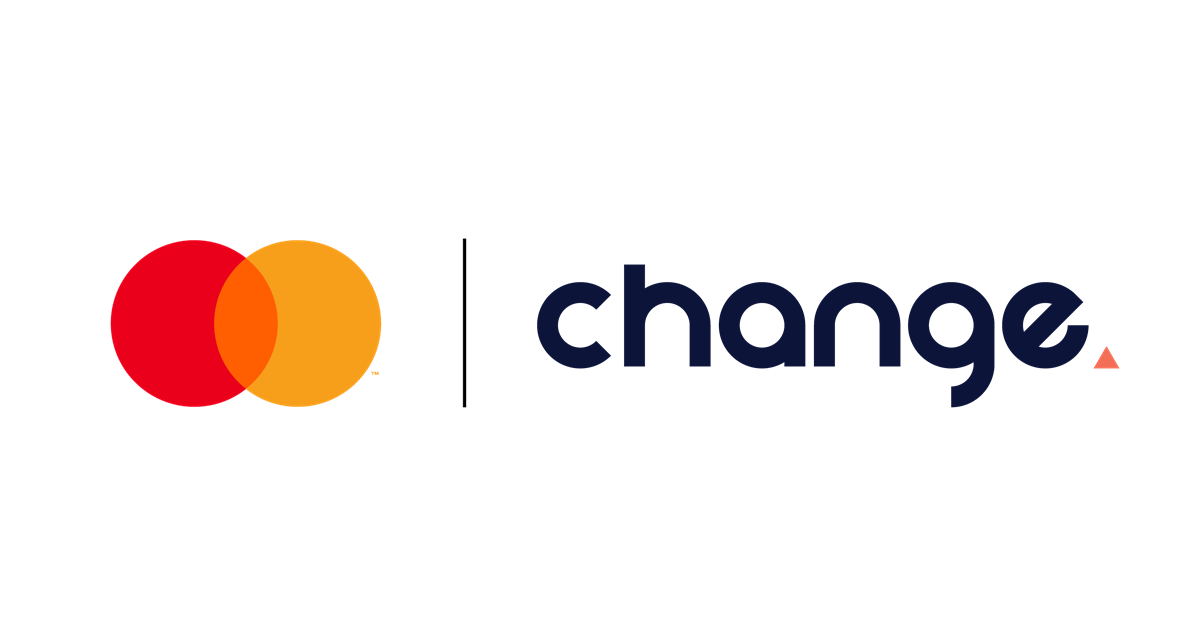Brisbane’s global fintech, Change Financial, unveiled Doing Good Rewards as the debut participant in their ambitious Prepaid Incubator program.
Doing Good Rewards is the world’s first loyalty program to automatically combine shopping discounts and charity giving in the same transaction. Their fresh approach has drawn attention for its powerful social impact and novel application of Mastercard prepaid cards, contributing to merchant onboarding and enhancing business visibility in the Australian market.
“Being chosen as the first participant in this remarkable program marks a pivotal moment for Doing Good Rewards. It validates our innovative approach in blending commerce with charity, and we are thrilled to work alongside esteemed partners like Change Financial, Fintech Actuator, and Mastercard,” said Brad Langdon, Chief Executive Officer of Doing Good Rewards.
“Brad and the team put forward a compelling value proposition and we’re excited that our first incubator participant has such positive social impact goals,” added Tim Boucaut, Managing Director, Fintech Actuator.
In this alliance, Change Financial will issue Mastercard prepaid cards, with Fintech Actuator managing the program, aiding fintechs with comprehensive guidance from onboarding to design and execution.
Mastercard will support the participants with access to industry experience, technology, and connections to help validate their program. Change Financial and Mastercard aim to create an environment that allows emerging fintechs to experiment, innovate, and prosper by offering them a platform to test their prepaid card solutions in the real world.
“This collaboration helps remove many of the barriers for local fintechs to enable card issuing programs, it’s designed to be accessible whilst allowing partners to test, learn and scale,” said Dan Martin, Vice President and Head of Digital Partnerships, Australia at Mastercard.
Each program will run for a period of six to nine months, providing continuous support and guidance to the participating fintechs.
“This innovative incubator program has been crafted with a vision to accelerate the growth and innovation of Australian fintechs, ensuring they have the necessary tools and support to navigate through the initial stages of development and market testing,” said Tony Sheehan, Chief Executive Officer of Change Financial.
To find out more about or apply to be part of the Incubator Program, head to https://www.fintechactuator.com/
Our Chief Product Officer, Vinnie D’Alessandro, recently shared his thoughts on how the RBA is helping Australia lead in the payments space. The article was shared by Dynamic Business.

Over the past decade, the global payments landscape has been through a complete digital transformation, from the emergence of digital wallets to functions like Apple and Google Pay becoming consumer standards for everyday payments.
But as consumers become to expect the latest and greatest technology at their fingertips, it is the next decade that we must look to as we prepare ourselves for new technologies, many of which may not even exist yet.
As we look to the future, the Reserve Bank of Australia (RBA) will continue to play a crucial role in ensuring that we are ready and able to grab hold of these innovations, as they are responsible for ensuring the stability, efficiency and competitiveness of the payments system overall.
The RBA, alongside a range of government bodies, successfully enabled modern payments solutions to flourish, supported by the work of the financial services industry in bringing products to market that accelerate this transition.
A key example of this is card payments, which continue to increase according to the 2023 Australian Payments Network’s annual review, which noted card payments were up 14 per cent from 2022, nationwide. Australians have come to expect both a physical and digital card that is linked to their accounts, whether that be a traditional credit or debit card, or modern applications like an employee card that is used for work expenses. This has led to a large number of product providers across the industry, from the big banks to fintechs, creating new ways to pay using cards, whether physically or digitally.
The RBA and the Federal Government more broadly have created policy settings that have allowed this natural transition to take place, whilst balancing the needs of protecting consumers. We look forward to the RBA’s focus on payments continuing as the industry progresses rapidly and demand for clever payments options continue to grow.
In the 2023 McKinsey Global Payments, the company has expressed their view that future revenue growth in the payments space will be stimulated most notably by instant-payments and the rise of digital wallets. The RBA has already provided strong policy frameworks, but product providers are playing catch-up. This is particularly evident in areas such as the use of digital wallets for transport payments and the gap in product offerings amongst smaller banks and fintechs. For digital wallet adoption to grow in Australia, product providers need to provide access to a broader range of people, including those who bank with smaller banks and use fintech services.,.
The New Zealand market is a strong example of where this gap in payments capabilities between larger financial institutions and smaller banks and fintechs is quite prominent. Until recently, it was near impossible for those using smaller providers to access card programs alongside their accounts. This was a gap in the market that companies like Change Financial identified over the last 18 months and by using their technology, they are able to help meet this demand and enable the smaller providers to offer card programs by outsourcing the back end capability. According to 2022 Payments NZ Consumer Research in New Zealand a staggering 84 percent of large purchases are paid using cards and 77 per cent of everyday purchases.
Future areas of expected growth
At Change Financial, we are seeing high demand from clients looking to offer contactless payments and mobile wallets for debit and prepaid cards. While the major banks and financial institutions have longstanding product offerings in these areas, smaller banks and fintechs are continuing to play catch-up, with many still unable to offer digital solutions to customers due to the prohibitive costs associated with the offering. But, with the help of providers like us, these businesses can now outsource that capability. As these features continue to rollout across the industry over time, card programs will continue to cement their place as the dominant means of payment for Australians, a trend we expect to continue in years to come.
The pandemic also accelerated the growth of online payments, with RBA data showing that in 2022, 18 per cent of payments were made online, up from 12 per cent in 2019. While increasing, this proportion is still relatively small when compared to card and other in-person payments and we expect this figure to continue increasing substantially over the coming years. This seamless transition to online payments during the pandemic also showcases the ability of Australia’s policy and regulatory settings to broadly cater for future opportunities and threats as they arise.
Another projected area of growth is the use of cryptocurrency (crypto) for everyday payments. While it is a nascent industry, adoption is increasing as further use cases are developed including crypto payment gateways and crypto-backed cards.
The RBA has undertaken preliminary research and discussions around creating a central bank digital currency (CBDC) and these should continue, as key global economies like the US seek to do the same. This will not only set our nation up for future opportunities, but ensure we are creating a payments ecosystem that encourages healthy competition.
Overall, the RBA must continue to be future focused to prepare for these advances and product providers of all sizes must do the same, to enable a national payments network that accommodates everyone. For this to occur, we must continue to be preparing for these advancements from a product and policy perspective, so that Australia can remain a global leader in the payments space.
- Change Financial (Change) and Fintech Actuator are partnering with Mastercard to launch an incubator program for Australian fintechs to trial prepaid card solutions.
- Under the partnership, Change will issue Mastercard prepaid cards and Fintech Actuator will act as the program manager to assist fintechs with onboarding, scope and design.
August, 1st 2023: Brisbane-based global fintech and payments as a service (PaaS) provider, Change Financial, has partnered with Mastercard and Fintech Actuator to make card programs more affordable and accessible to local fintechs and startups.
Under the program, Australian companies will be able to run small scale prepaid card solutions to test their products in market, without the cost and extensive processes involved in launching their own custom card programs.
Chief Executive Officer of Change Financial, Tony Sheehan, said the partnership was one of the first of its kind in Australia and will nurture startups by providing greater access to enabling card programs, previously unattainable.
“Australia continues to be a popular global fintech hub and we see many of these new businesses unable to complement their product offering with a card program because they don’t have the capital, expertise or understanding of the process,” Mr Sheehan said.
“This partnership with Mastercard and Fintech Actuator will significantly reduce these barriers to entry for startups creating greater opportunities for local fintechs.”
The advantage of the program is that it will offer low-cost onboarding and holistic support and guidance services throughout the establishment, testing and rollout stages.
Dan Martin, vice president and head of digital partnerships, Australia at Mastercard, said that as the fintech market in Australia continues to evolve and expand, collaboration between likeminded organisations can drive real impact in helping new entrants scale quickly.
“Speed to market, testing and increased agility are paramount in driving innovation and propelling smaller fintechs forward. Mastercard’s aim is to foster an ecosystem that allows fintech startups to thrive, contributing to the overall advancement of the Australian fintech industry. Mastercard supports fintechs with the industry experience, technology and connections that it has built across many decades,” said Martin.
Each program will run for between six and nine months and at Mastercard and Change Financials’ discretion, fintechs will have the opportunity to roll out a prepaid card program that is serviced through Change Financial and Mastercard.
Fintech Actuator’s Tim Boucaut commented “Startups and many smaller companies don’t meet the scale and volume requirements to launch a card program, and this partnership changes that. By guiding businesses through the process and providing support to test and validate an idea, we are enabling more local innovations to successfully launch in the ever-growing payments space.”
The program will commence in September 2023.
You can find more information at https://www.fintechactuator.com/
Fintech Australia – Member Announcement
- Change’s principal issuer capability through Mastercard will allow the company to directly issue cards to clients in Australia
- Ability to tap into direct issuance allows smaller operators to bring their card programs to market faster by removing red tape
- Change also launches their Banking Identification Number (BIN) sponsorship in Australia
Australian-based global fintech and payments as a service (PaaS) provider, Change Financial (Change), today announced the launch of direct issuing services for prepaid and debit card programs in Australia. This offering will enable local bank and fintech clients to offer a card program to consumers through the technology of both Mastercard and Change Financial.
Chief Executive Officer of Change Financial, Tony Sheehan, said card programs with this depth of features have previously only been available to larger banks and fintechs due to the costs, operational processes and scale required.
“We are committed to making this technology accessible to Australia’s growing number of fintechs and smaller banks, and this partnership is levelling the playing field for local companies, by allowing them to access program features previously unattainable,” Mr Sheehan said.
The partnership draws on the respective strengths of both companies, utilising Mastercard’s global payment network and technology, to enable Change’s customers to create and launch prepaid and debit card programs across the nation.
“This is facilitating Change’s ongoing expansion by unlocking new lines of business and allowing the company to create Mastercard programs and offer them to market on behalf of clients.”
“In Australia, we continue to see fintechs, credit unions and mutual banks struggle to provide modern technology solutions such as Apple Pay and Google Pay and this partnership will also help bridge the gap and again level the competitive playing field.”
“By outsourcing issuance, banks and fintechs can focus on their core business and leverage the loyalty they’re known for, generating more customer satisfaction while creating new revenue and data streams.”
Change has also launched its Banking Identification Number (BIN) sponsorship offering in Australia and New Zealand, enabling global companies without local issuing capabilities to access Change’s principal issuing status with Mastercard.
“By launching our BIN sponsorship offering, we are now able to act as an issuer for global companies looking to operate in the region, which is a key advantage for these companies as they can avoid the expense and administrative process of becoming an issuer in every region.”
Change Financial Chief Product Office, Vinnie D’Alessandro wrote an opinion piece for Dynamic Business about how Australian fintechs can lead the way in the US payments space.
The US is a key player in the global financial system. Yet it appears to be lagging behind the global frontier when it comes to adopting modern payment solutions.
Vinnie D’Alessandro
Check out the article here https://dynamicbusiness.com/leadership-2/expert/opinion/do-aussies-have-the-key-to-unlocking-payment-potential-in-the-us.html
Change Financial (CCA) has announced it has been granted a Mastercard Principal Issuer licence for Prepaid and Debit cards in New Zealand.
Being a Mastercard Principal Issuer allows Change to deliver card programs to banks, credit unions, fintechs and other businesses, looking to offer digital and physical card payments to their customers.
In March 2022, Change announced an exclusive agreement to partner with Mastercard to issue prepaid and debit card products in Australia and New Zealand.
Change CEO, Alastair Wilkie commented, “We are excited to be a Mastercard Principal Issuer in New Zealand for Prepaid and Debit cards. To be granted our licence less than 6 months after our Mastercard partnership announcement is a wonderful result for both parties.”
Wilkie continued, “Our business has a long New Zealand heritage and it’s a proud moment for our business, especially our Auckland based team members. Our new capability will allow us to lower the barrier of entry for New Zealand banks, credit unions, fintechs and business to deliver innovative card solutions to their customers.”

Change also recently announced they would be issuing Mastercard debit cards for First Credit Union, Nelson Building Society, Police and Families Credit Union and Westforce Credit Union.
Change Financial Limited (ASX: CCA) released the company’s full year results for the year ended 30 June 2022 (FY22).
Change CEO and Managing Director, Alastair Wilkie commented, “This was a transformational year for Change, with the Company in a position to scale our technology offering globally. During the period, we expanded our client base from 136 across 36 countries to 156 in 41 countries, whilst also delivering key building blocks that set us up for continued success. The Change team globally has operated in challenging circumstances and they should be proud of what they have achieved in FY22.”
FY22 Highlights
- FY22 revenue of US$8.3m (A$12.0m), up 32% on prior corresponding period
- Launched new Vertexon Payments as a Service (PaaS) platform
- Signed seven new Vertexon PaaS clients with total contract value anticipated to be in excess of US$12.9m (A$18.7m) over the initial terms
- Includes milestone Vertexon PaaS contracts with four New Zealand financial institutions with TCV anticipated to be in excess of US$10.5m (A$15.2m) over the initial five-year terms
- 1st US Vertexon PaaS client now live and transacting generating recurring revenues
- Signed a six-year agreement with Mastercard to enable direct issuing in Australia & New Zealand
- Received regulatory approval to enable direct issuing in New Zealand, regulatory approval in Australia is expected in coming months
To access an overview of the FY22 results and outlook for FY23, please see our Results Presentation
Change Financial (ASX:CCA) is pleased to share the MST Access Initiation Report published today.
You can download the research here or read the content below
Change Financial was features in Fintech Australia’s Five Fintech on Friday along with Kanopi, FirstAML, MyLenda, and Radium Capital


Change Financial (ASX:CCA) partners with fintechs and banks, to provide tailored payment, card issuing, and testing solutions. The global fintech has over 146 clients across 41 countries, managing and processing over 16 million credit, debit, and prepaid cards, delivering flexible and fast-to-market payment solutions. Change’s Vertexon provides leading digital and physical card solutions for banks and fintechs. Vertexon makes it simple for clients to launch full featured digital payment experiences to their end consumers fast.
Five of the top ten global payment companies trust Change’s PaySim for payment simulation and testing solution, helping them meet the reliability and performance expectations.
https://www.fintechaustralia.org.au/five-fintechs-on-friday-february-4-2022/
After onboarding multiple new clients to its global platform, Change Financial (ASX: CCA) is set to convert its recent product launches into new sales opportunities via Stockhead
Fintech payments leader Change Financial confirmed achievement of key platform milestones and new sales in an exciting quarter update this morning.
Among a number of operational highlights, CEO Alastair Wilkie flagged the successful launch of the company’s Vertexon platform, with additional products under development and a strong pipeline of new work opportunities – both in Australia and globally heading into 2022.
“We continued to grow our sales pipeline and see these opportunities progress through the sales funnel. During the quarter, we converted a significant number of opportunities into contracted revenue which will be realised in future quarters,” Wilkie said.
Importantly, Change commenced onboarding its first payments-as-a-service (PaaS) client in the lucrative US market during the quarter and is now pursuing multiple new clients leads across the US, Australasia and Latin America.
Accompanying that strong momentum, Wilkie and the CCA executive team have a clear strategic vision and key performance metrics to drive further growth in the year ahead.
Business highlights
Across the company’s operational objectives, CCA achieved a priority target in Q4 with the successful launch of Vertexon – a modern digital solution for banking clients to unify back-end process for prepaid, debit and credit cards.
During the December quarter, Change launched the Vertexon SaaS platform on Amazon Web Services (AWS) in Sydney, to service banks and fintechs in the Oceania region.
Delivered on schedule and on budget, the platform is highly scalable with the functionality for rapid global rollouts in response to client demand.
Along with that in-market launch, CCA also completed the beta phase of testing on the new Application Programming Interface (API) for PaySim – its SaaS-based automated payment testing solution that allows banks and fintechs to accelerate their development and product release cycles, the company said.
“The API enables clients to automate load, stress and regression testing to produce comprehensive results reporting and is the foundational component of PaySim’s software as a service offering,” CCA said.
As a measure of its product market-fit, PaySim is already in use by five of the top 10 digital payments companies globally, and marks a particularly exciting growth channel for Change.
Client momentum
In line with those key successes in product development, CCA was also able to convert its momentum into a number of new client wins.
Among them was the addition of a new fintech Mastercard prepaid card program in the US, which will deliver a minimum contract value of US$700,000 (~$1.0m) over an initial three-year term.
Client on-boarding is “well-progressed” and is expected to go live in the March quarter 2022, CCA said.
In addition, the company has secured US$1.3m (~$1.8m) of sales across its new product platform, with “US$1.1 million of Vertexon projects and US$200,000 of PaySim projects for existing clients”.
“Change expects further significant client wins to close in the third and fourth quarters of FY22 as opportunities progress through the sales funnel,” the company said.
The net outcome is that investors can look forward to a steady pipeline of growth for new revenue and cash-flow channels, as CCA continues to build its client base.
Importantly, around 55% of CCA’s revenue has been generated from recurring revenue streams.
Contracted ARR increased to US$4.7m, led by the successful onboarding of Change’s new PaaS client in the US market.
And as evidence of its strong momentum, Change highlighted that its sales pipeline grew by a net-24 opportunities in the December quarter to 158, while 23 new client opportunities were won and closed out.
“There was a significant increase in customer invoicing in Q2, particularly in December, which is expected to drive cash collections in Q3,” Change said.
With a scalable platform that services more than 16 million payment cards and 147 clients in 41 countries, CCA continues to carve out a profitable niche in the multi-billion dollar global payments market.
And following a transformative period in the second half of 2021, the company is set for a big year of growth in 2022.
https://stockhead.com.au/tech/change-financial-continues-to-drive-growth/

